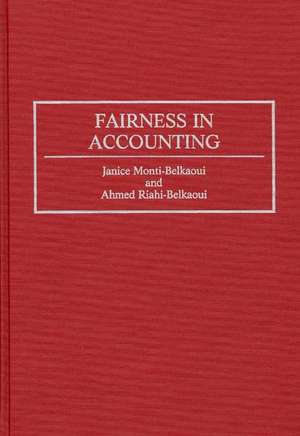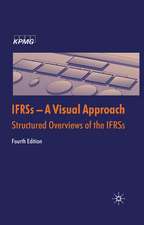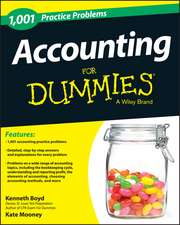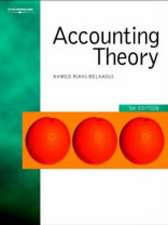Fairness in Accounting
Autor Ahmed Riahi-Belkaoui, Janice Monti-Belkaouien Limba Engleză Hardback – 15 feb 1996 – vârsta până la 17 ani
Preț: 345.74 lei
Preț vechi: 556.30 lei
-38% Nou
Puncte Express: 519
Preț estimativ în valută:
66.16€ • 69.21$ • 54.96£
66.16€ • 69.21$ • 54.96£
Carte tipărită la comandă
Livrare economică 02-16 aprilie
Preluare comenzi: 021 569.72.76
Specificații
ISBN-13: 9781567200188
ISBN-10: 1567200184
Pagini: 192
Dimensiuni: 156 x 235 x 13 mm
Greutate: 0.45 kg
Ediția:New.
Editura: Bloomsbury Publishing
Colecția Praeger
Locul publicării:New York, United States
ISBN-10: 1567200184
Pagini: 192
Dimensiuni: 156 x 235 x 13 mm
Greutate: 0.45 kg
Ediția:New.
Editura: Bloomsbury Publishing
Colecția Praeger
Locul publicării:New York, United States
Notă biografică
JANICE MONTI-BELKAOUI is Professor of Sociology at Rosary College, River Forest, Illinois, and Chair of the Department of Sociology, History, and American Studies./e She writes frequently for scholarly journals and is coauthor of Accounting in the Dual Economy (Quorum, 1991).AHMED RIAHI-BELKAOUI is Professor of Accounting at the College of Business Administration, University of Illinois at Chicago. At last count, he has published more than 100 articles in various refereed journals and other publications and authored or coauthored more than 24 academic and professional books for Quorum.
Cuprins
PrefaceFairness in PresentationFairness in DistributionFairness in DisclosureEntitlements, Rights, and Fairness in Intrafirm Resource AllocationSelected ReadingsIndex










